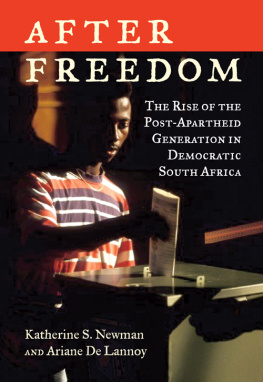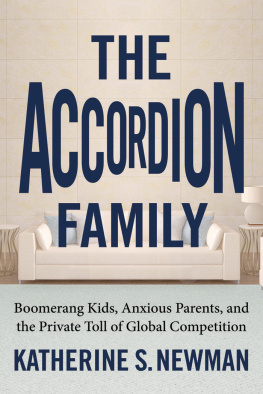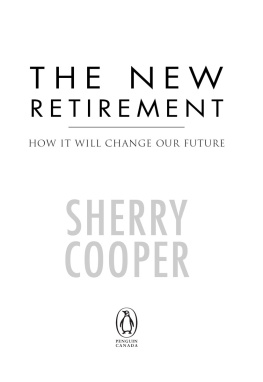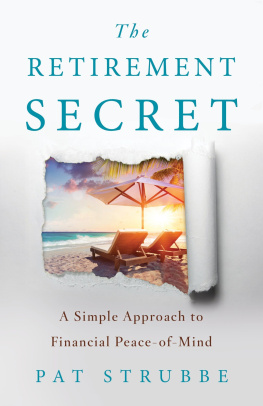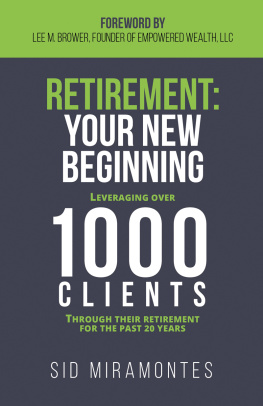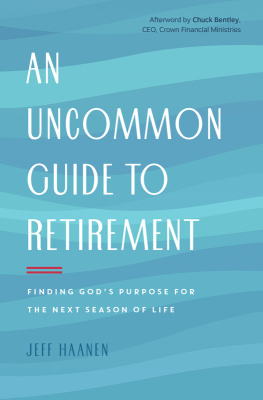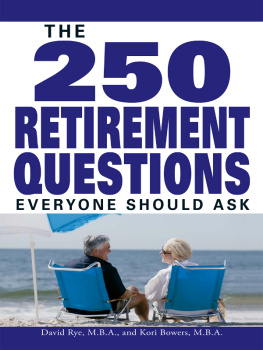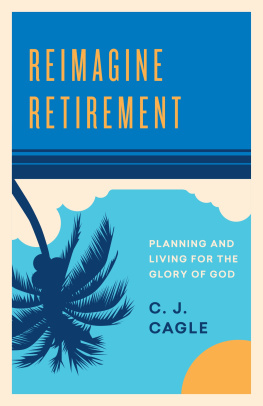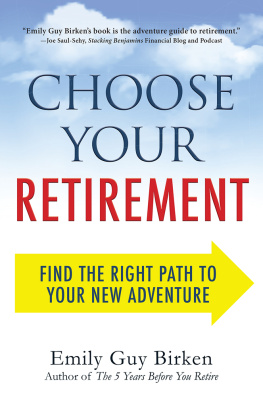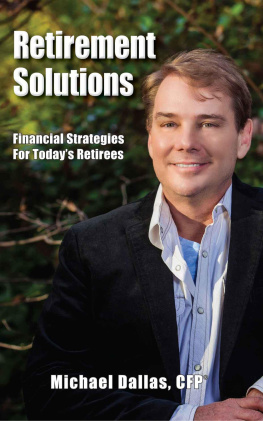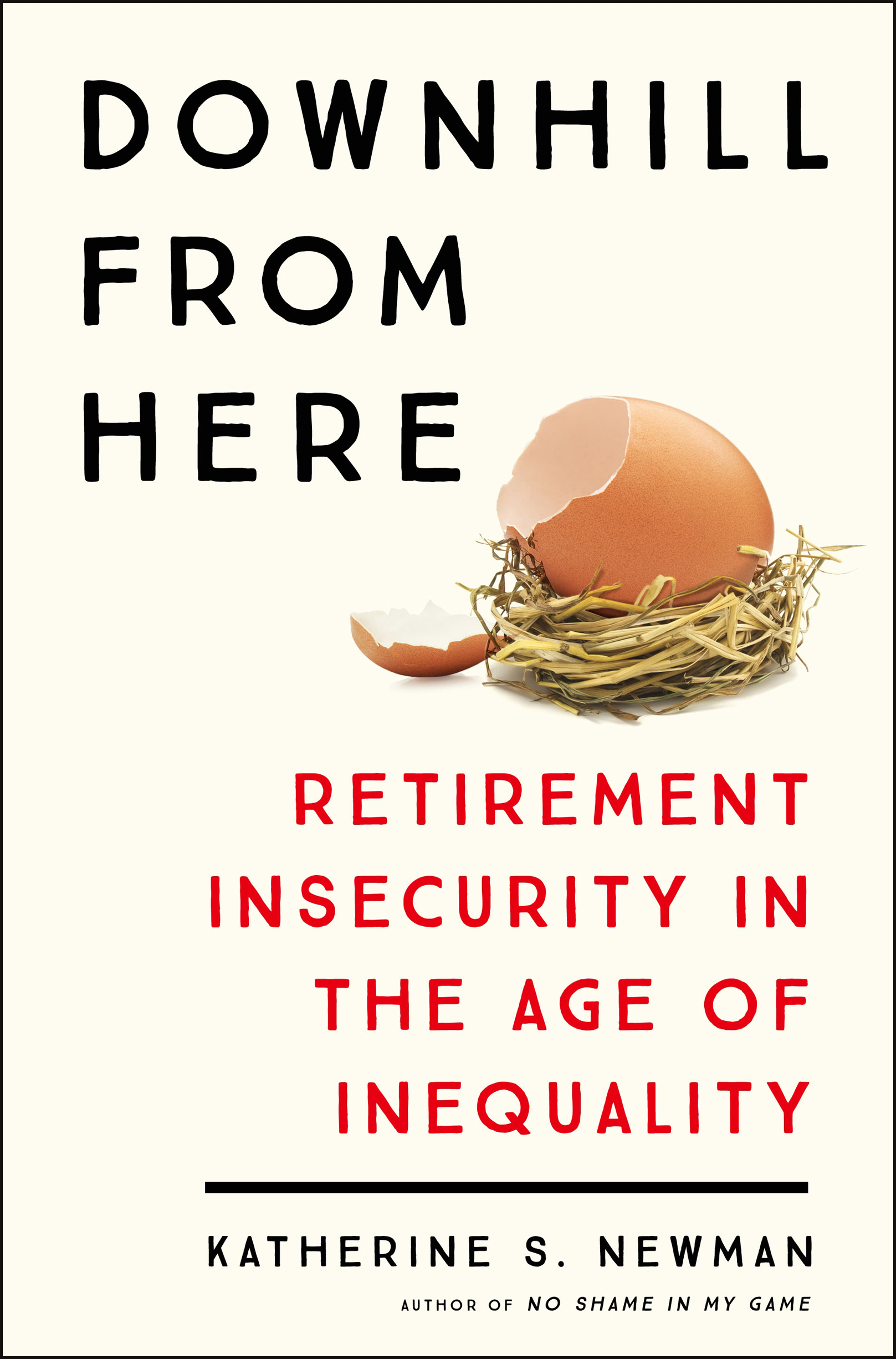The author and publisher have provided this e-book to you for your personal use only. You may not make this e-book publicly available in any way. Copyright infringement is against the law. If you believe the copy of this e-book you are reading infringes on the authors copyright, please notify the publisher at: us.macmillanusa.com/piracy.
M illions of Americans are approaching the end of their working lives with a deep sense of financial insecurity. Nearly half of all private-sector employees in the United Statessome fifty-eight million peoplehad no company-sponsored retirement plan in 2018. The retirement situation in the United States isnt just bad, its moving in the wrong direction.
Baby boomers and the generations following behind them are at risk for an old age that is significantly less secure than the one they imagined. Recent federal legislation, for instance, has enabled massive cuts in pension benefits. Terry, a seventy-five-year-old retired trucker living in Troy, Michigan, got the unwelcome news that his Teamster pension was among those on the chopping block. Told that he would receive special consideration because of his age, he found that his benefits were set to be cut by more than 45 percent. I was shocked beyond words, he says. My wife and I are wracking our brains trying to figure out how we can live with half a pension check. No medicine? Food stamps? Welfare? What will we do? Sell the house? And move where?
Gary, a fellow retired trucker in Altoona, Iowa, is a decade younger and has been told that his benefits will be slashed by 60 percent. He seethes with anger as he tries to make sense of where he has ended up. I worked thirty-seven years of twelve to sixteen hours a day to live a decent life in retirement. How can people in Congress be so cruel? he asks. I bet their pensions will never be cut. How many have gone to Washington and come home millionaires? Next year is an election year. Vote every one of the SOBs out!
Blue-collar workers like Terry and Gary are hardly the only retirees caught in this maelstrom. High-skilled professionals working for profitable major corporations like Verizon and United Airlines have also found themselves profoundly affected. And the crisis has also spread beyond the private sector. Elsie, a sixty-year-old woman, has worked for the city of Detroit since she was thirty. As a result of her citys bankruptcy, she has been stripped of her health insurance, lost part of her pension, and has even been ordered to return to the city some of the payments to her retirement accounts approved by pension authorities years ago. Elsie has plenty of company in Detroit and elsewhere in the country: three small cities in California have already followed Detroits lead by threatening the benefits promised to their retired public servants.
Across the spectrum, workers have responded to the crisis by planning to work for many more years than they had expected, only to find that they cannot hold on to the jobs they had in their fifties. Aching backs make physical labor too difficult, and employers are often looking for ways to ease out older, more expensive workers. Those who do find employment past sixty-five are likely to be relegated to positions that are far below the statusand the salaryof the jobs they once held.
Economists and policy scientists are warning of an impending financial meltdown as companies and cities walk away from their obligations to retirees. The good fortune of longer lifespans is colliding with the inadequacy of the public policies that we assumed would undergird financial stability in retirement. Elder poverty, a problem we thought was resolved during Roosevelts New Deal, is again rearing its head.
Pensions are regarded by most workers as among the most durable of promises. Americans assign government the responsibility of protecting this sacred bond against any firm tempted to raid retirement accounts for their own purposes. Increasingly, though, this once-unbreakable promise has become a discretionary benefit. Employers can abandon it when the stock market falters, when a firm goes through financial reorganization, or simply when shareholders demand higher profits. Insecurity is becoming the standard across many kinds of employment. And younger generations are finding that the concept of retirement itself is slowly fading away, replaced by a work life that does not end at the traditional age of sixty-five. As private pensions, Social Security, and Medicare become increasingly inadequate, working life simply has to go on.
Of course, this problem is not universal. In late 2015, the Institute for Policy Studies and the Center for Effective Government copublished a report entitled A Tale of Two Retirements that substantiates what many have long suspected: while companies default on pensions and benefits for most of their workers, up in the C-suite the weather is fine. Not only are CEOs socking away millions of dollars in executive retirement plans, but they are enjoying such benefits on a tax-deferred basis. In 2014, Fortune 500 chief executives put $197 million more into their retirement accounts than they would have been able to do if they were ordinary workers, saving $78 million on their tax bills in the process. They wont start paying a dime of taxes on those funds until they retire, thus depriving the countryat least for nowof critical resources needed to run schools, hospitals, and other public institutions.
Retirement insecurity is an increasingly serious manifestation of the vast inequality that is eating away at the social fabric of America. The same forces that are eroding pension rights are also leading to historic levels of wage inequality, the uneven distribution of wealth, a hollowing out of the middle class, and polarization in the economic trajectories of racial groups. Roaring stock markets exacerbate inequality by driving increases of wealth at the top. Middle-class equity is tied up in the housing market, which has gyrated in ways that have placed increasing downward pressure on retirement savings for the majority.
The problem of inequality has moved from an academic preoccupation to a growing theme in national and local politics. The 2013 election of Mayor Bill de Blasio in New York was the first real political victory attributable to citizens demanding its reversal. Inequality was the centerpiece of Bernie Sanderss 2016 presidential campaign, and eventually a leitmotif for Hillary Clinton as well. Tellingly, when members of Congress returned to their districts to test out messages for the 2016 election season, the one issue that resonated among their varied publics was Do something about retirement.
We know a lot about the impact of such inequality on children, on youth, and on working-age adults. It has been the subject of many books (including several of my own). What we dont know is what those same forces mean to those who are at the end of their work lives. Downhill from Here dwells on the lived experience of retirement insecurity. It gives voice to the experience of retirees, those on the cusp of retirement, and those in their forties and early fifties for whom retirement is just coming into view. The people featured here hail from many different occupations, geographies, and racial and religious communities, but almost all of them have something in common: in their various ways, theyve been brought to the brink.


